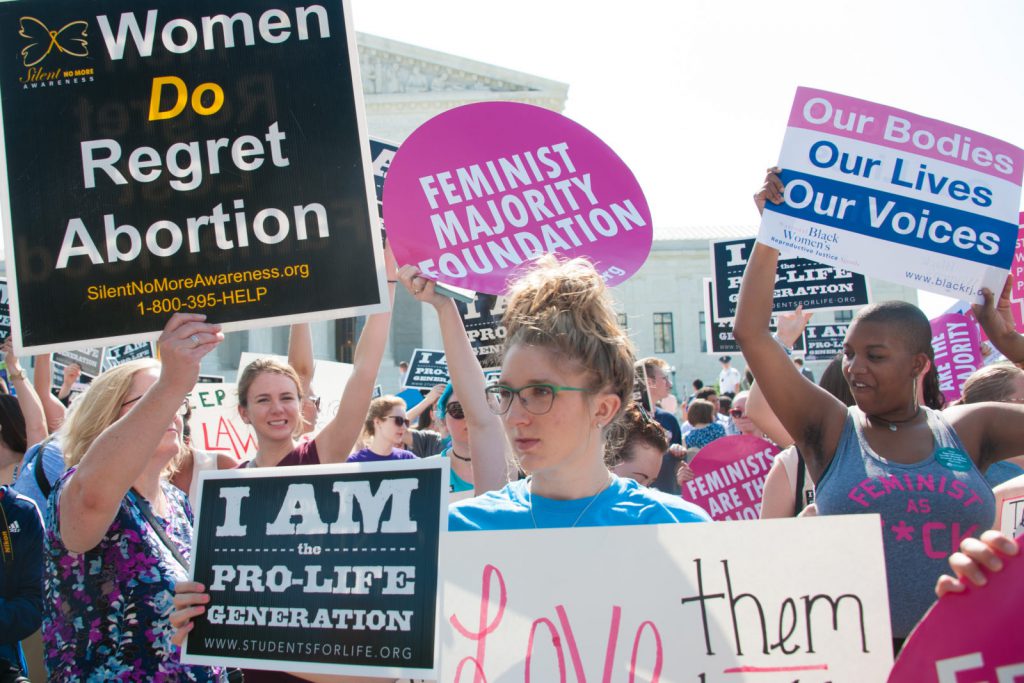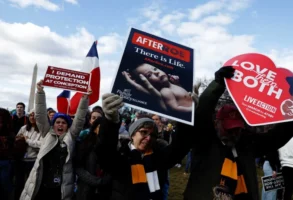
Published June 28, 2016
The Supreme Court’s decision in Whole Woman’s Health v. Hellerstedt marks a dramatic escalation in the controversial jurisprudence of abortion. For more than 40 years, the high court has indulged the dubious proposition that the Constitution itself places unborn children beyond the protection of the law from the private violence of abortion.
But before this decision, the Supreme Court would also at least permit states to adopt some ancillary measures that its elected officials believed would offer additional health and safety protections for women seeking abortions. So long as these regulatory side constraints on abortion were grounded in a legitimate state interest and rationally related to pursuing that goal, the court let them stand, provided they did not erect a substantial obstacle preventing the woman from exercising her final and decisive authority to obtain an abortion. For example, the court has affirmed abortion-related laws including parental involvement, waiting periods, informed consent requirements, and even bans on certain controversial abortion procedures. They upheld these statutes, even when they had the effect of making abortion more costly, time-consuming, or onerous to obtain.
When evaluating these measures, the high court did not substitute its own policy preferences for that of the state legislatures involved, nor did the court balance its own judgment of the law’s benefits against the burdens it imposed. They treated the law’s legitimacy and its burdensomeness as separate matters. In this way, the political branches of government retained at least some latitude to make abortion law and policy apart from interference from the judiciary.
No more. Whole Woman’s Health changes the law, because it empowers a bare majority of justices with the authority to weigh the benefits (as they see them) of challenged abortion regulations against their burdens — a departure with ramifications far beyond the specific Texas law at hand. State legislators no longer enjoy the freedom to act according to their best judgment. Now, even in the absence of a developed factual trial record about the concrete effects of the challenged law (as in this case), the court can simply second-guess state legislatures and engage its own intuitive policy calculus to determine if the benefits of an abortion regulation outweigh its costs.
It is not hard to guess how justices who ardently support maximal abortion rights will decide such questions. Never mind that these same justices would never in any other context besides abortion credit a regulated industry’s claim that it should not be made to comply with duly enacted health and safety regulations because they are too costly.
In short, the court has declared that the U.S. Constitution empowers it to serve as, in the words of former Justice Byron White, “the country’s ex-officio medical board with powers to approve or disapprove medical and operative practices and standards throughout the United States” — a proposition that an earlier court wisely rejected in 1992 in the seminal case of Planned Parenthood v. Casey. It has stripped from states the authority to extend additional protections to women such as clinic safety standards or admitting privilege requirements for abortionists. This is a breathtaking misappropriation of power, without warrant in the text, history, or tradition of the U.S. Constitution. It is a devastating blow to the rule of law, to self-governance, to the authority of states to regulate the practice of medicine in the name of health and safety, and worst of all, to the inalienable dignity of unborn children and their mothers.
O. Carter Snead is a professor of law and director of the Center for Ethics and Culture at the University of Notre Dame. A bioethicist who specializes in the governance of science, medicine and biotechnology in the name of ethical goods, he served as general counsel to the President’s Council on Bioethics from 2002-2005.





